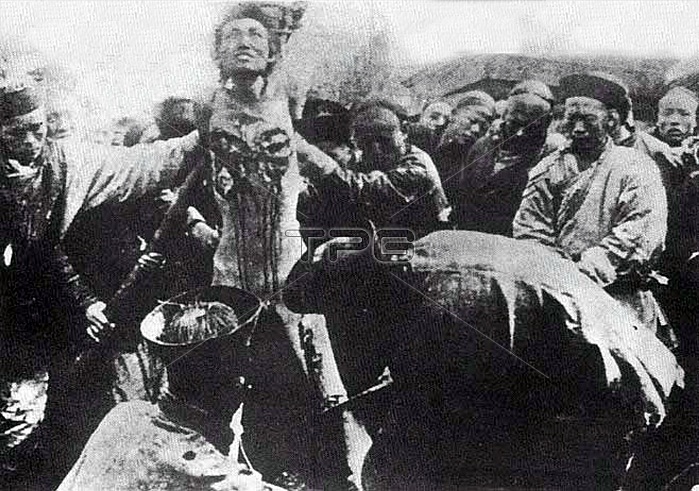
Slow slicing' (pinyin: lingchi, alternately transliterated Ling Chi or Leng T'che), also translated as the slow process, the lingering death, or death by a thousand cuts, was a form of execution used in China from roughly 900 CE until its abolition in 1905. In this form of execution, the condemned person was killed by using a knife to methodically remove portions of the body over an extended period of time. The term lingchi derives from a classical description of ascending a mountain slowly. Lingchi was reserved for crimes viewed as especially severe, such as treason and killing one's parents. The process involved tying the person to be executed to a wooden frame, usually in a public place. The flesh was then cut from the body in multiple slices in a process that was not specified in detail in Chinese law and therefore most likely varied. In later times, opium was sometimes administered either as an act of mercy or as a way of preventing fainting. The punishment worked on three levels: as a form of public humiliation, as a slow and lingering death, and as a punishment after death. The latter as to be cut to pieces meant that the body of the victim would not be 'whole' in a spiritual life after death.
| px | px | dpi | = | cm | x | cm | = | MB |
Details
Creative#:
TOP27042564
Source:
達志影像
Authorization Type:
RM
Release Information:
須由TPG 完整授權
Model Release:
No
Property Release:
No
Right to Privacy:
No
Same folder images:

 Loading
Loading